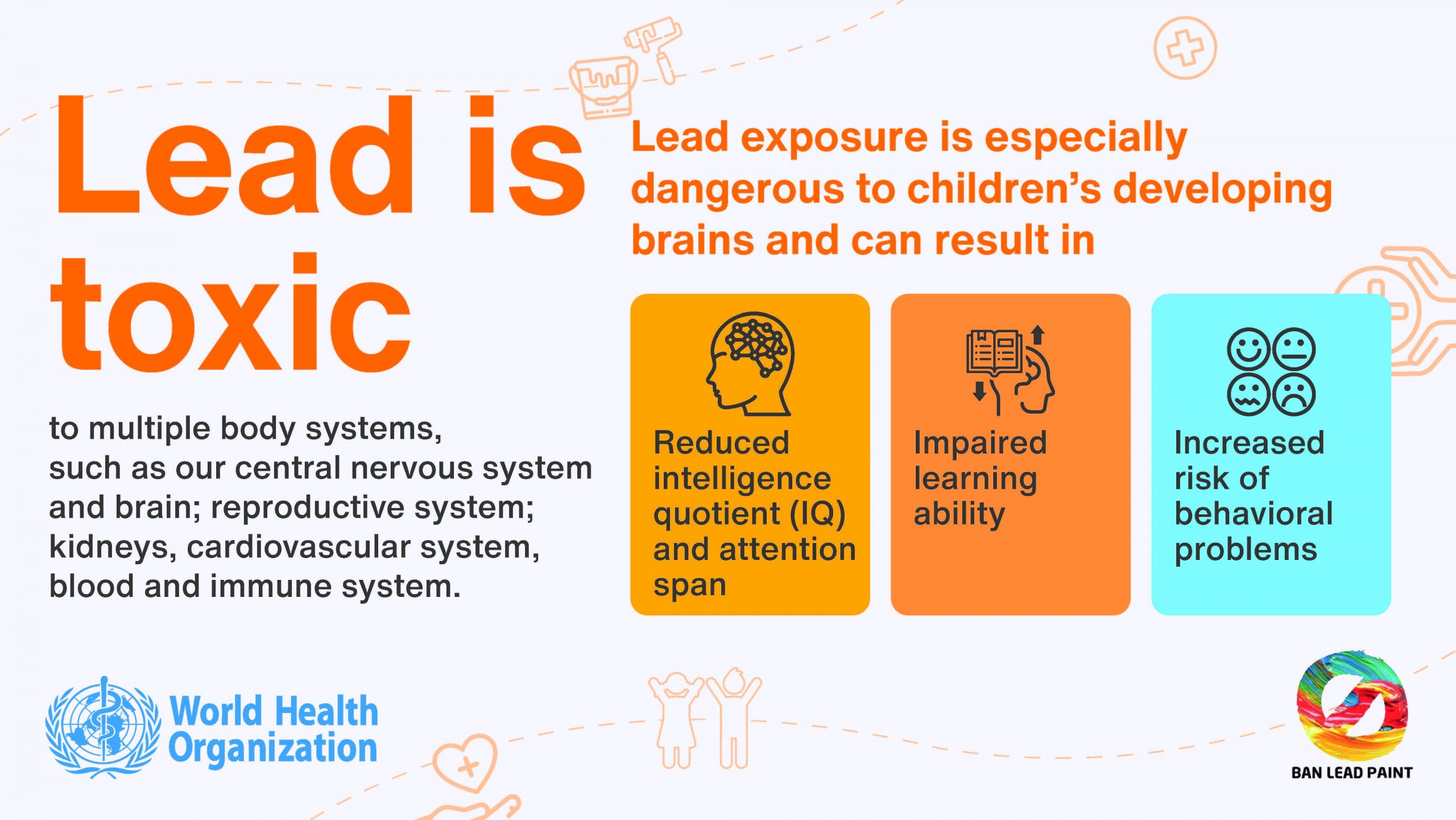“Our water is safe,” then-City of Jackson Public Works Director Kishia Powell said in 2016. “There is no lead in the drinking water as it leaves the plant.” But now, a federal judge has allowed about 1,000 children diagnosed with lead poisoning to proceed in a case against the City of Jackson and the Mississippi State Department of Health in a March 23 order. Hundreds more could soon join the case.
In the order, U.S. District Court for the Southern District of Mississippi Judge Carlton Reeves described the allegations against the state health department for its handling of Jackson’s lead-contaminated water as “straight-up negligence.” Reeves cited the lawsuit’s allegation that the department used a pre-flushing method that artificially lowered lead test results, failed to warn residents about contamination and issued boil water notices—a practice that does not remove lead from water, but instead concentrates it.
Both the City and MSDH declined to comment for this story, citing the ongoing litigation.
The court dismissed suits against Jackson Mayor Chokwe A. Lumumba, MSDH Senior Deputy Jim Craig, former Mayor Tony Yarber and former City Public Works directors Kishia Powell, Robert Miller and Jerriot Smash. Reeves said Trilogy Engineering Services LLC did not seek dismissal from the case in his 59-page order. The company’s lawyers did not reply to emails and voice messages the Mississippi Free Press left Tuesday.

New York-based attorney Corey Stern filed the 2021 and 2022 cases, which the judge consolidated on behalf of hundreds of plaintiffs. The plaintiffs were born between 2003 and 2021 and were all diagnosed with elevated blood lead levels, the judge said.
“The Mississippians who brought this suit are children who have relied upon Jackson’s water all their lives,” Reeves said in his order. “Far from sustaining life, they say, Jackson’s water shortens it: the lead-contaminated water that flows through Jackson’s pipes has poisoned their bodies and impeded their development.”
“Worse, they continue, City and State officials have been deliberately indifferent to their plight. The City of Jackson’s response? That its officials’ claims of safety weren’t technically lies, but even if they were, the City ‘did not compel [the Plaintiffs] to drink water.’”
Judge: Officials ‘Grossly Downplayed the Severity’
Attorney Stern based the case on records from the Mississippi State Department of Health and the U.S. Environmental Protection Agency, showing the lead problem in Mississippi’s capital city was worse than the lead water crisis in Flint, Mich., a case in which he was also a lead lawyer.
“We were blown away to learn that the levels in Jackson and the homes that we were certain were affected in Jackson and were likely affected in Jackson were more than what it was in Flint,” the attorney told the Mississippi Free Press on April 13.

In his order, Judge Reeves said the “conditions that gave rise to this suit can be traced back to 2013” when the “Mississippi Department of Health warned Jackson officials that federally mandated testing had revealed increasing levels of lead in the city’s water supply.”
Reeves said that then-Jackson Interim Public Works Director Willie Bell told Jackson leaders the problem was likely caused by high acidity levels from the Pearl River Basin, where the two city water treatment plants source water; a malfunctioning lime-feed injection system at the treatment plant; and “most of Jackson’s homes had pipes that were partially or completely made of lead, and that lead-contaminated water could pose a high risk of lead poisoning to children.”
“Despite these warnings, almost two years passed without any action from MSDH or the City,” the judge wrote. “In late January 2016, State and City officials informed Jackson’s residents—for the first time—of the high concentrations of lead in their water,” and followed that up “with the first of several boil-water notices for the City of Jackson” in February 2016, the judge continued.
City officials at the time “grossly downplayed the severity of the problem,” the judge wrote.
In 2016, then-Mayor Tony Yarber said, “We’re not Flint,” the judge noted. “But the reality was that, in some ways, Jackson’s water crisis was more dire than Flint’s: whereas 16.7% of households in Flint were affected by the city’s lead-contaminated water, more than a fifth (22.4%) of Jackson’s households were so affected.”

The problem with lead in the water in the city continued “for the remainder of 2018 and … through 2020,” as the “City consistently failed to get the water system back up and running,” the judge wrote.
“Instead, the City, in conjunction with MSDH, issued a series of boil water notices,” and “worsened the problem,” he added. The City and MSDH frequently issue boil water notices due to ongoing water issues, including the monthslong citywide boil water notice last year when much of the city lost access to running water for weeks.
‘Toxins in the City’s Water’
The hundreds of plaintiffs suing the City allege that drinking the tap water has led to lead poisoning diagnoses, with some exhibiting cognitive deficits, emotional and behavioral issues, difficulty focusing, and difficulty completing schoolwork and chores.
“Yet they were not made aware of the toxins in the City’s water and were never provided any kind of in-home filtration system to help them clean their water,” Reeves said. “As a result, these Plaintiffs, too, have been diagnosed with lead poisoning.”
In a study released in September 2021, researchers found that elevated blood lead levels are more prevalent in high-poverty areas and ZIP codes with predominantly Black populations.

Researchers Marissa Hauptman, Justin K. Niles, Jeffrey Gudin and Harvey W. Kaufman said there is no safe level of lead in the water and “children residing in zip codes with predominantly Black non-Hispanic and non-Latinx populations had higher odds of detectable blood lead levels.” They relied on data from 1,141,441 children under the age of 6 in all 50 states and the District of Columbia who participated in the study.
Researchers reported in the Science of the Total Environment Journal in July 2021 that Black infants experienced an “approximately 46–55% greater average estimated loss of grade school IQ points from blood lead than Hispanic or White infants.” (The use of IQ tests as a measure for intelligence, however, is heavily contested in scientific circles and has a long racist history).
Attorney Stern told the Mississippi Free Press he is not pursuing a class action lawsuit, but instead wants a remedy tailored to each child based on the lifetime economic loss from lead poisoning.
“We’re talking about the trajectory of their lives, the trajectory of their careers, the trajectory of their lifetime earnings, and so for each child, it is in the millions (of dollars). And that’s not because I’m a greedy lawyer trying to get as much money as I can; that’s because I have children. That’s because I’ve represented thousands of children over 20 years, and I understand based on the science, based on the experts, what each child is losing,” he said.
“But ultimately, you are talking about hundreds of millions of dollars, if not billions of dollars, that this group of children in Jackson, Mississippi, are losing economically over the course of their lives.”
In a status conference on the case Tuesday morning, the federal judge directed the parties to submit up to three names to consider for a special master for the case.
Stern filed another case on behalf of 667 clients at the same federal court earlier this month, he said.
“It’s a complex case with thousands of plaintiffs. … (It is) typical to have a special master to assist the Court with discovery issues,” Stern said, adding that the number of plaintiffs they represent continues to grow. “We get calls every day.”










